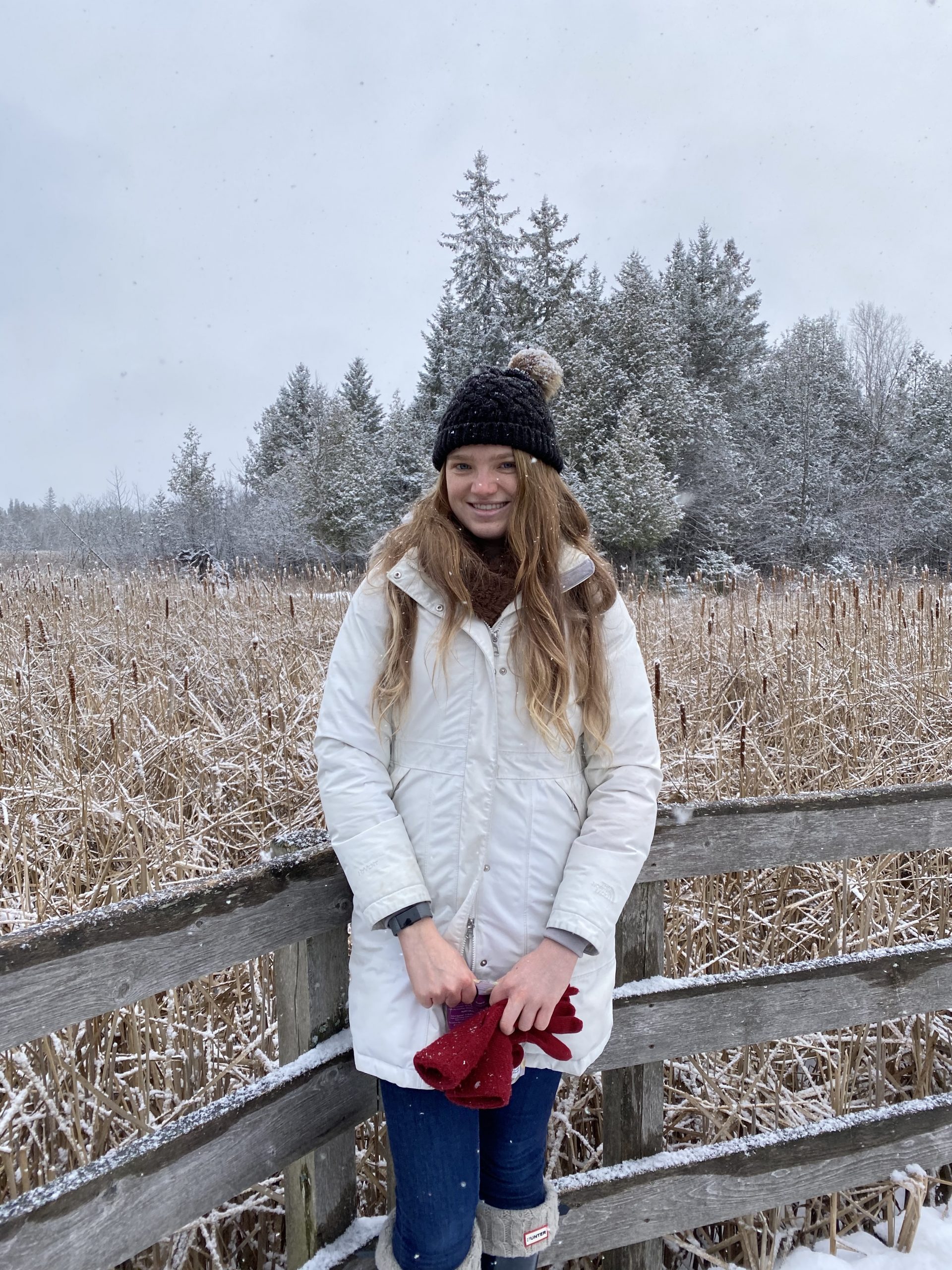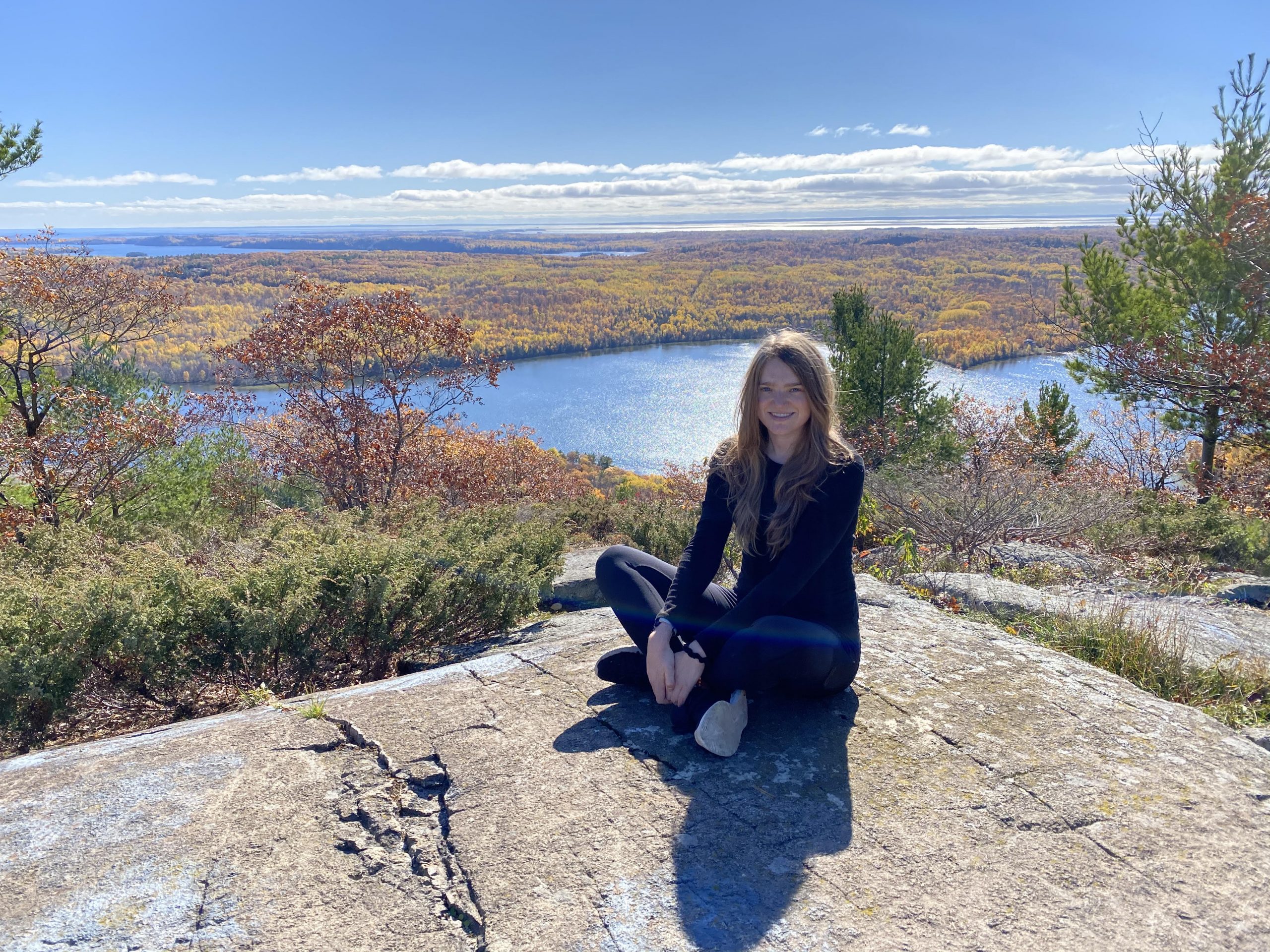Graduation Story: Research Worth Its Weight in Gold
Brittany Astles has always been interested in water quality. No wonder, as she was from a small town in Northern Ontario where there are multiple boil water advisories in many communities.

“I was always interested in how Canada can be a developed ‘First World’ country but can still have so many communities without clean water, especially First Nation communities that suffer with this problem.”
So she chose to do her master’s research at Carleton on water quality and focused her attention on arsenic mine contamination in the Yellowknife area’s water. Arsenic is a part of the toxic residue from gold mining. In Yellowknife, there used to be two working gold mines.
Astles’ supervisor, Dr. John Chételat, is a research scientist with Environment and Climate Change Canada (ECCC) who is leading the ECCC research on arsenic in Yellowknife. Astles’ research was a part of this larger study.
Previous studies have shown that the diffusion of buried arsenic in lake sediment into the overlying water can be impacted by water temperature. The results of Astles’ research, however, showed that it’s not directly temperature that impacts the diffusion rate, but other factors such as oxygen level and biological activity, which are influenced by temperature.
This larger ECCC project is still ongoing. The results of Astles’ research will be used in the ECCC project, and may inspire further research on the multiple factors that can influence arsenic diffusion.
Astles graduated this fall with a Master’s degree in Geography with a Specialization in Data Science.
She says she first chose to pursue this degree because of her passion for the environment and thought that the additional specialization would be beneficial as she notes that: “Research is extremely data-driven and, if you understand how to work with it, it will give you an extra edge in the job market.”
Although she found the program challenging, she said it taught her how to properly manage her time and to adapt. For example, due to COVID, she had to cancel her original research plan that called for field and lab work. Astles shared that: “I was fortunate to have an extremely well-organized supervisor, so I had a previous experiment to fall back on that enabled me to write my thesis.”
The graduate says that the geography department is great and filled with incredible people, and the specialization in data science will benefit any program and can be used in multiple work environments. She shared: “Data science will just become a bigger and bigger field. If you know how to work with data then you can easily find your place in the private or public sector.”
But she says that the best part of her program was: “The people I got to meet and work with in the geography department. My geography cohort are incredible people and I learned a great deal from them as I did from the professors.”
She appreciates the mentorship she received from her supervisors. “My main supervisor was Dr. Chételat, who was an amazing supervisor. I would not have gotten through the tribulation of COVID without him. My co supervisor was Dr. Jesse Vermaire who was also incredibly helpful throughout my thesis process. Both supervisors helped me plan my original planned thesis and then helped me write up my thesis.” PhD student Michael Palmer, who is supervised by Chételat and Prof. Murray Richardson provided the sediment cores she used in her experiment, and provided data needed for her research.
Astles already started a full-time position in September, and now works with Defence Canada as a defence scientist. She attributes some of her career success to her Carleton program.
“From an academic perspective it taught me how to properly do research, do different kinds of research, write different types of reports, and to properly handle and work with data. On a personal side, it has taught me how to manage my time, how to teach myself new material, how to adapt to new circumstances and to have confidence in myself. There were many times I felt overwhelmed by the amount of work I had to do, but I was always able to get through it.”
Another highlight for Astles was TAing during her masters, as the students she had TA’d had nominated her for best TA in winter 2020. “One student told me he added a minor in Environmental studies to his degree because he enjoyed my tutorials so much. Throughout my TAships, many students told me the only reason they passed the courses I was TAing was because I helped break down the material for them, and they were not afraid to approach me with questions. It was a really great compliment.”
Astles graduated this fall with her master’s degree from Carleton University. Carleton will be hosting a special virtual graduation ceremony on Nov. 13.
